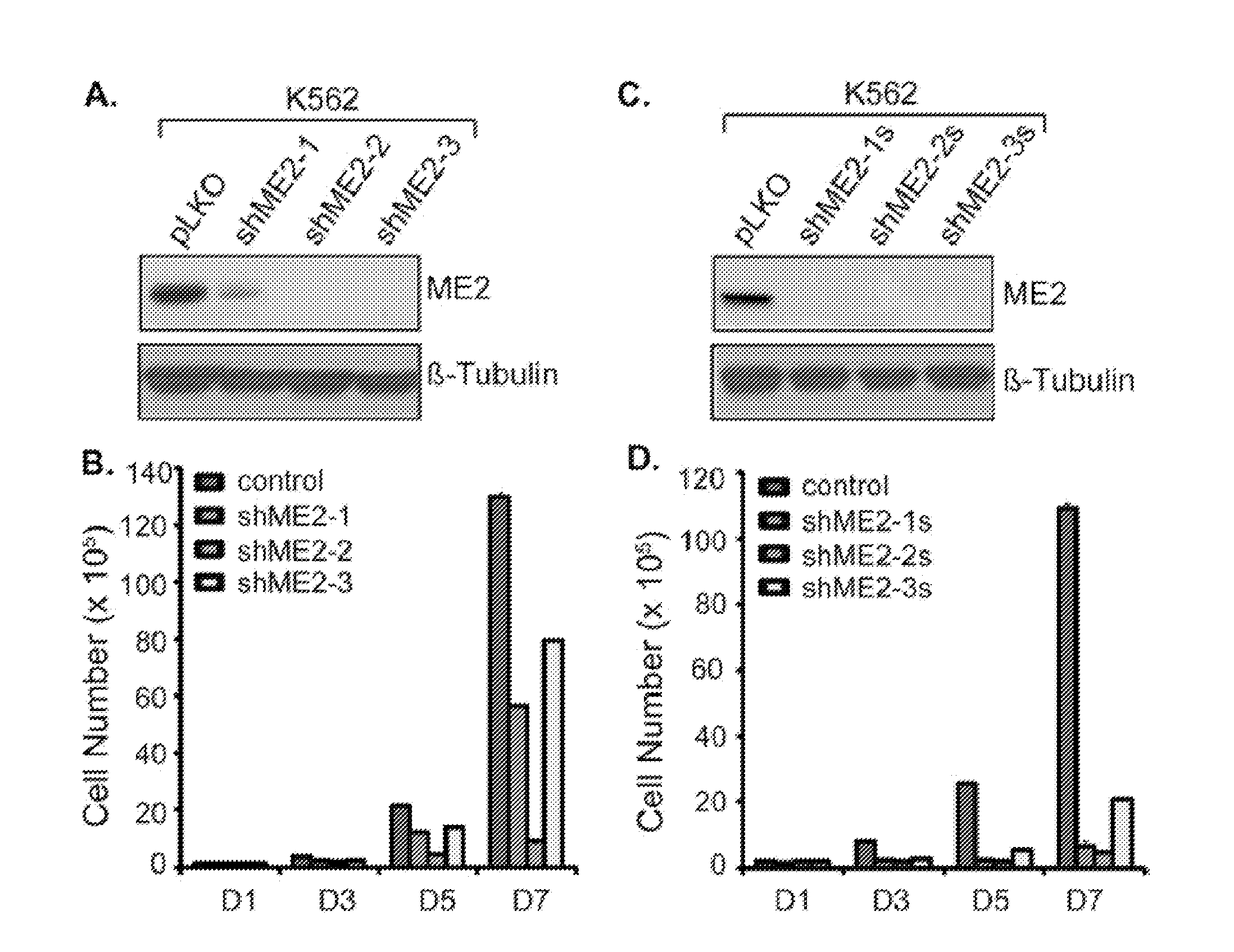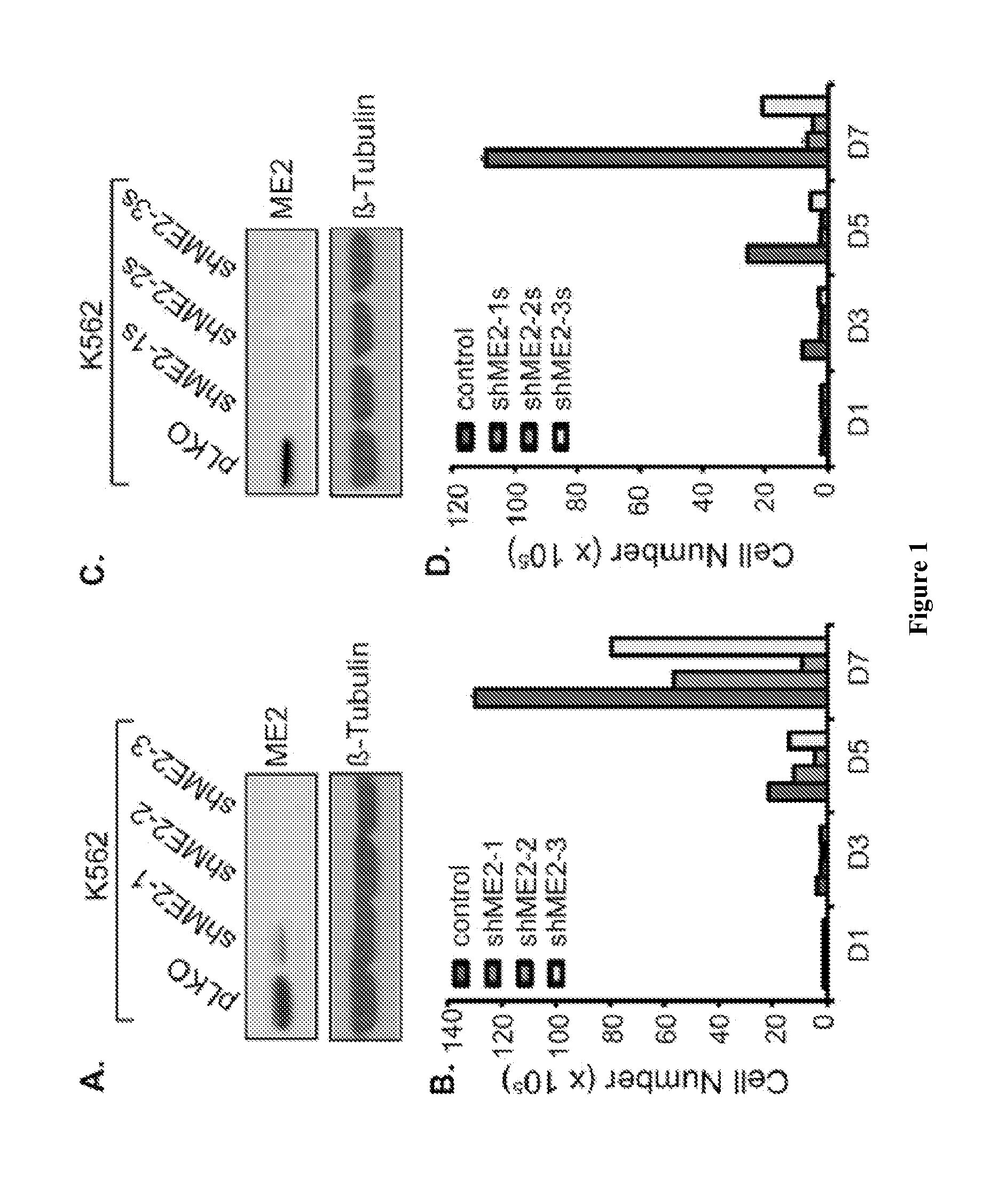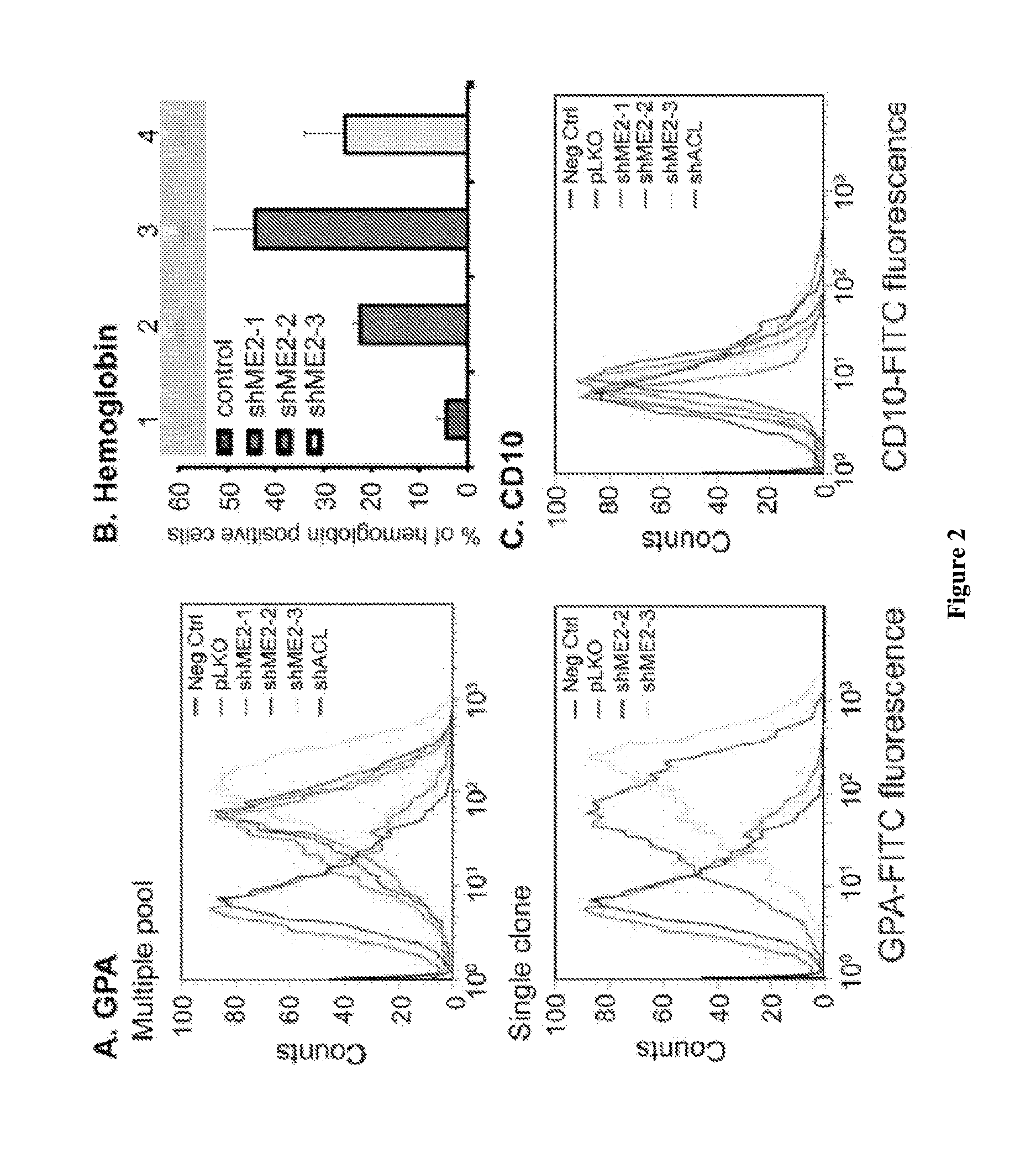Methods and compositions for malic enzyme 2 (ME2) as a target for cancer therapy
a cancer therapy and malic enzyme technology, applied in the field of methods and compositions for malic enzyme 2 (me2) as a target for cancer therapy, can solve the problems that many targets useful for cancer therapy (e, targets) have not yet been identified, and achieve the effects of preventing the spread of disease, reducing the extent of disease, and reducing the risk of cancer
- Summary
- Abstract
- Description
- Claims
- Application Information
AI Technical Summary
Benefits of technology
Problems solved by technology
Method used
Image
Examples
example 1
Induction of Erythroid Differentiation in Human Erythroleukemia Cells by Depletion of Malic Enzyme 2
[0115]Summary: Malic enzyme 2 (ME2) is a mitochondrial enzyme that catalyzes the conversion of malate to pyruvate and CO2 and uses NAD as a cofactor. Higher expression of this enzyme correlates with the degree of cell de-differentiation. We found that ME2 is expressed in K562 erythroleukemia cells, in which a number of agents have been found to induce differentiation either along the erythroid or the myeloid lineage. We found that knockdown of ME2 led to diminished proliferation of tumor cells and increased apoptosis in vitro. These findings were accompanied by differentiation of K562 cells along the erythroid lineage, as confirmed by staining for glycophorin A and hemoglobin production. ME2 knockdown also totally abolished growth of K562 cells in nude mice. Increased ROS levels, likely reflecting increased mitochondrial production, and a decreased NADPH / NADP+ ratio were noted, but us...
example 2
ME2 Expression in Clinical Tumor Samples
[0168]We investigated ME2 expression in clinical tumor samples (from Protein Biotechnologies) by Western blotting. Eighty tumor specimen representing 13 types of solid tumors were probed by Western blotting with ME2 antibody (Sigma). ME2 overexpression was present in the majority of analyzed tumors, including lung (FIG. 11A), bladder, breast, esophagus, liver, ovary, prostate and skin. Moreover, we also investigated ME2 expression in a human tumor tissue array from US Biomax (anti-ME2 antibody from Sigma) and this data provided overall corroboration of the Western blot data. Increased ME2 expression was observed in lung cancer tissue, as compared to normal adjacent lung tissue (FIG. 11B). These data suggest that ME2 may play an important role in solid tumors, such as lung cancer.
example 3
Generation and Characterization of ME2 Deficient Lung Cancer Cell Lines
[0169]We generated A549 (non-small cell lung cancer) cells that are ME2 deficient by lentiviral shRNA induced RNA interference using three different RNA sequences. Knockdown of ME2 in A549 cells lines showed very little or no ME2 expression by Western analysis. Cell proliferation was markedly diminished in ME2 knockdown pools (FIGS. 12A and 12B) and single clones (FIGS. 12C and 12D) with all three shRNAs tested. These findings also apply to other non-small cell lung cancer (NSCLC) cell lines, such as those with one or more mutations that confer resistance to front-line anticancer agents. Since EFGR mutations are present in many patients with NSCLC, we assessed cellular proliferation in EGFR mutant TKI sensitive NSCLC cell line (H1650) using lentiviral shRNA induced RNA interference. For these cells, proliferation was diminished in ME2 knockdown pools, as compared to control (FIGS. 12E and 12F). Accordingly, RNA i...
PUM
 Login to View More
Login to View More Abstract
Description
Claims
Application Information
 Login to View More
Login to View More - R&D
- Intellectual Property
- Life Sciences
- Materials
- Tech Scout
- Unparalleled Data Quality
- Higher Quality Content
- 60% Fewer Hallucinations
Browse by: Latest US Patents, China's latest patents, Technical Efficacy Thesaurus, Application Domain, Technology Topic, Popular Technical Reports.
© 2025 PatSnap. All rights reserved.Legal|Privacy policy|Modern Slavery Act Transparency Statement|Sitemap|About US| Contact US: help@patsnap.com



